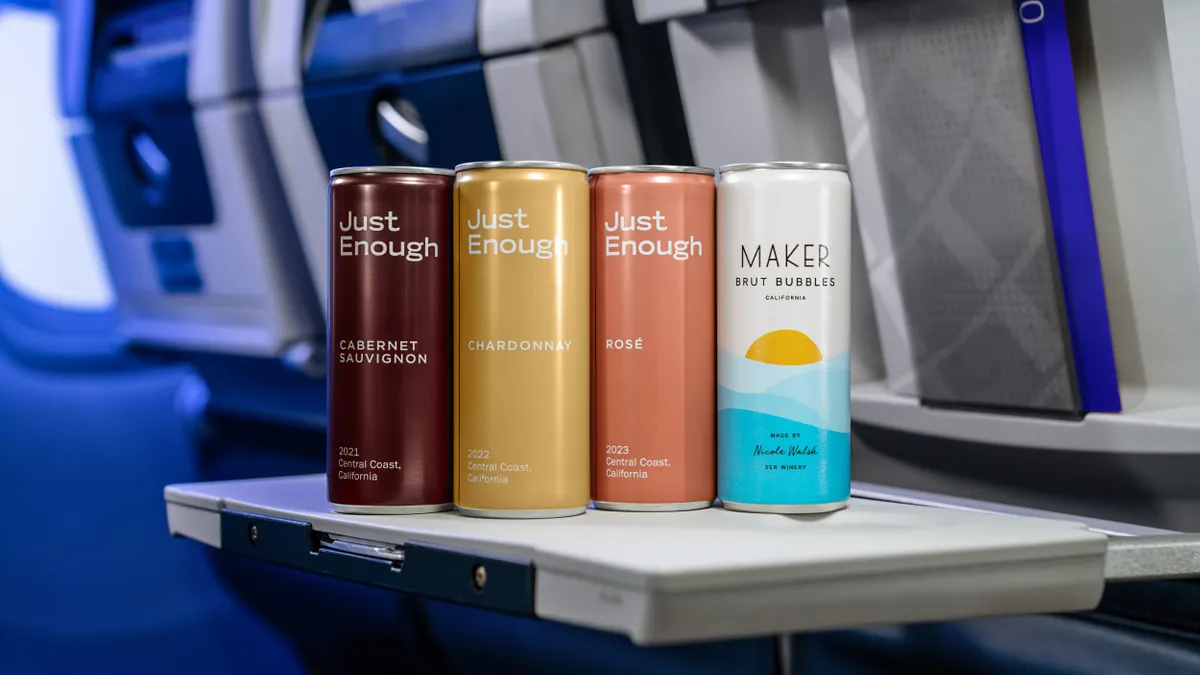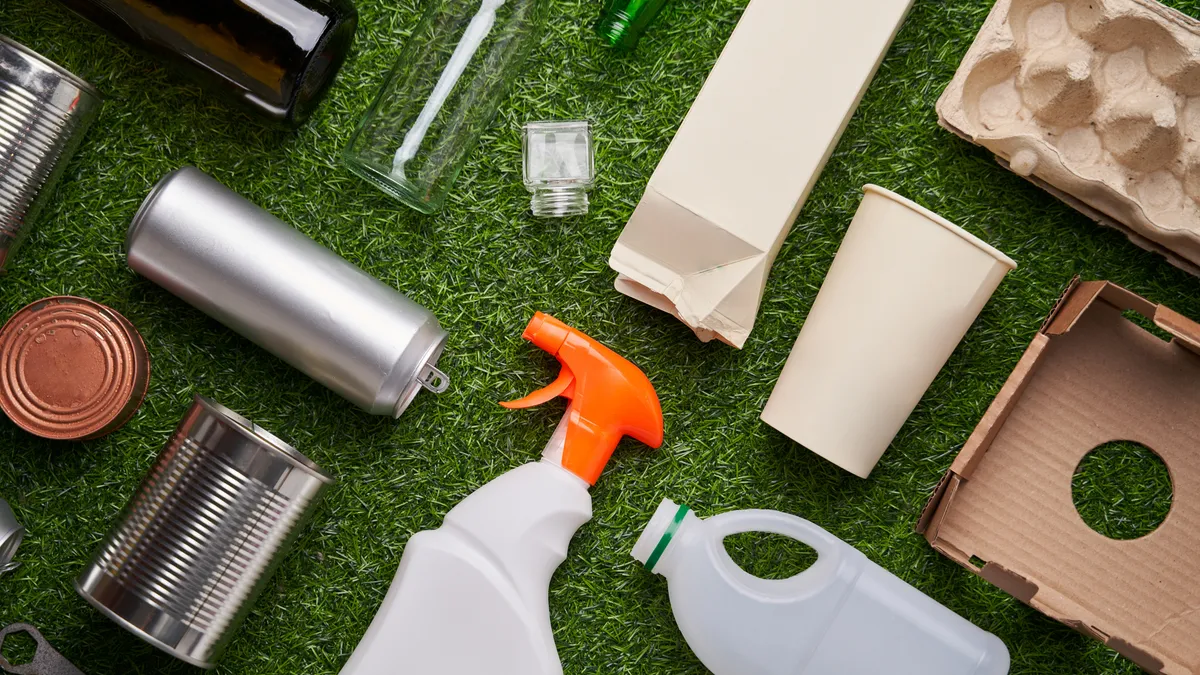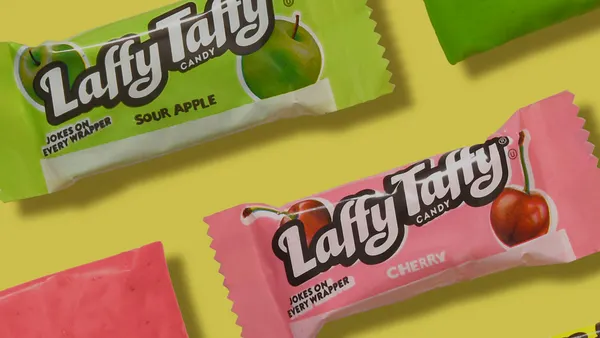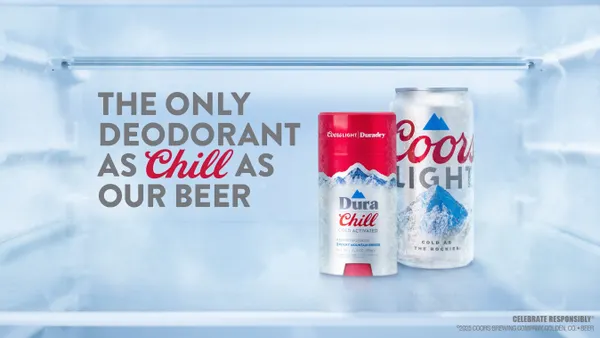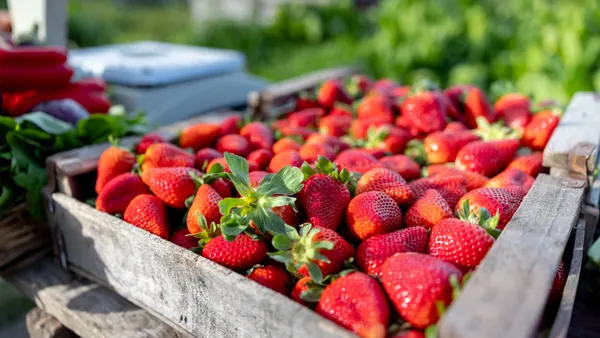Companies constantly innovate with technology and redesign their packaging to get better performance, improve marketability and enhance sustainability. Here’s a look at five new or redesigned packaging solutions on Packaging Dive’s radar.
Canned rosé all day
United Airlines is saying bye-bye to bottles as it expands its wine offerings. As of Oct. 1, it’s switching from miniature plastic wine bottles to 250-milliliter aluminum cans as it introduces new rosé and sparkling varieties from Just Enough Wines and Maker Wine for domestic economy travelers.
The cans hold the equivalent of about a glass-and-a-half of wine, and they’re served with a cup. The new format will eliminate the use of about 4.7 million single-use plastic bottles each year, United said in a news release. The aluminum cans also align with United’s on-board recycling efforts.
Lighter spirits
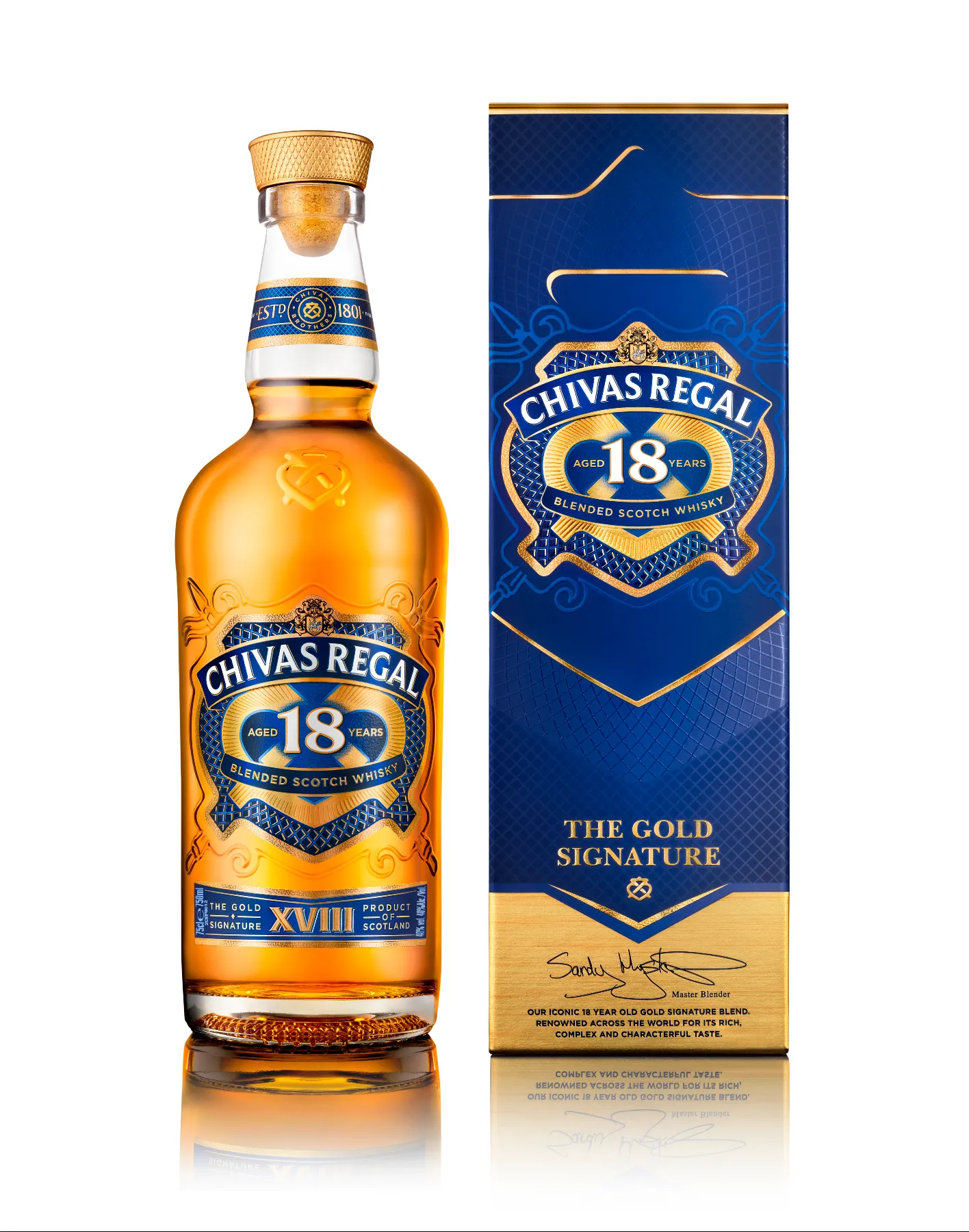
Bottles for Chivas Regal 18 scotch whisky not only have a new look, they’re lighter, too. The new 70-centiliter glass bottles are 25% lighter than the previous version, which the company expects will save more than 500 metric tons of glass annually. The updated bottle also is taller and has decorative branding embossed into the glass.
The outer carton also got an update and now is recyclable, according to Chivas Regal. The new design rolls out globally starting this month.
Cannabis cocoon
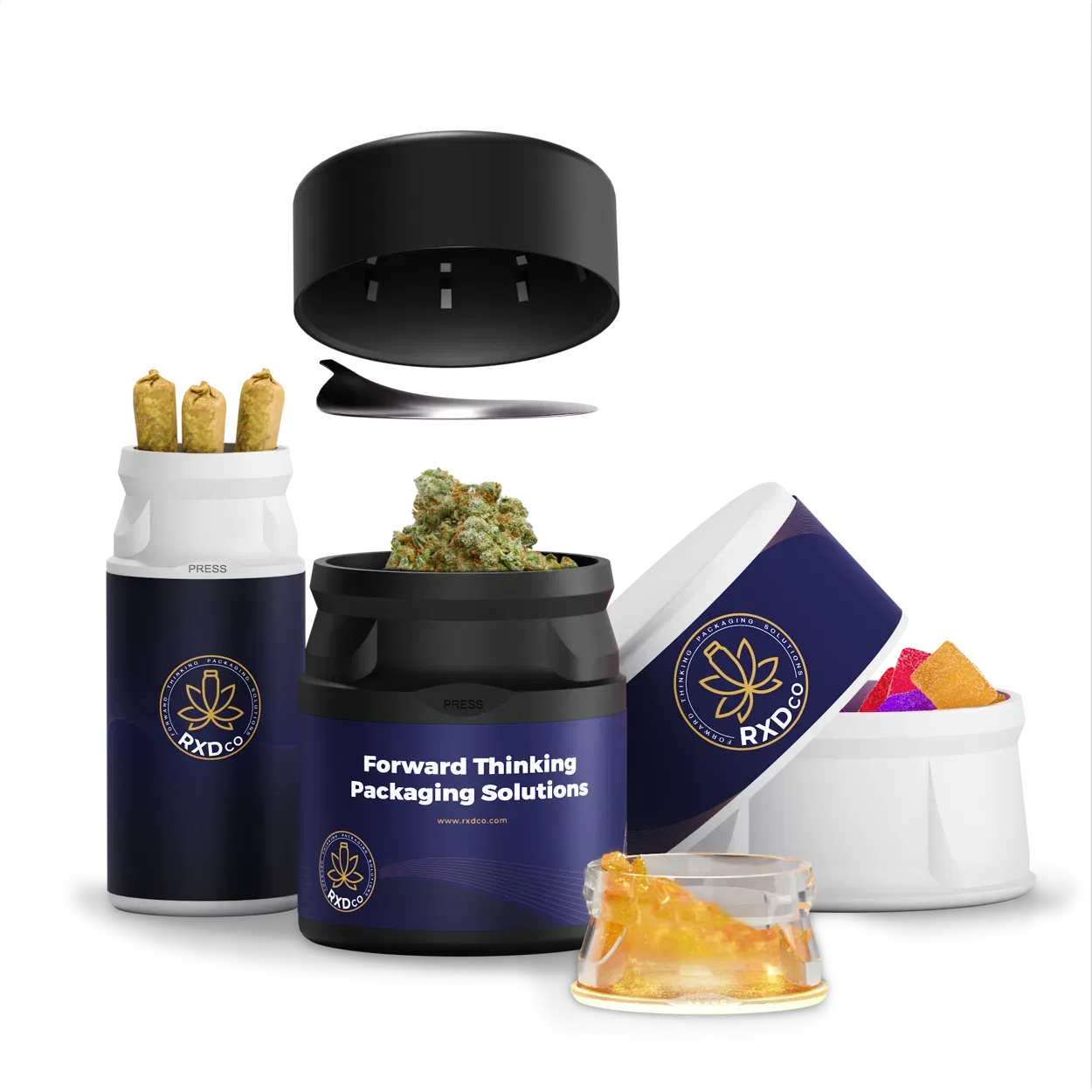
Cannabis packaging company RXDco launched child-resistant containers that it calls cocoon jars. The patented press-fit, pop-off closure makes an audible click and provides an airtight seal that keeps the product fresh and prevents odors from escaping, the company said in a news release. They’re made from polypropylene, which the company says is recyclable, and also are available in PHA bioplastic, which it says is compostable.
"We believe that Cocoon Jars will set a new benchmark for cannabis packaging, combining innovation, functionality, and eco-friendliness,” Moshe Zussman, CEO at RXDco, said in the release.
Raise a flag
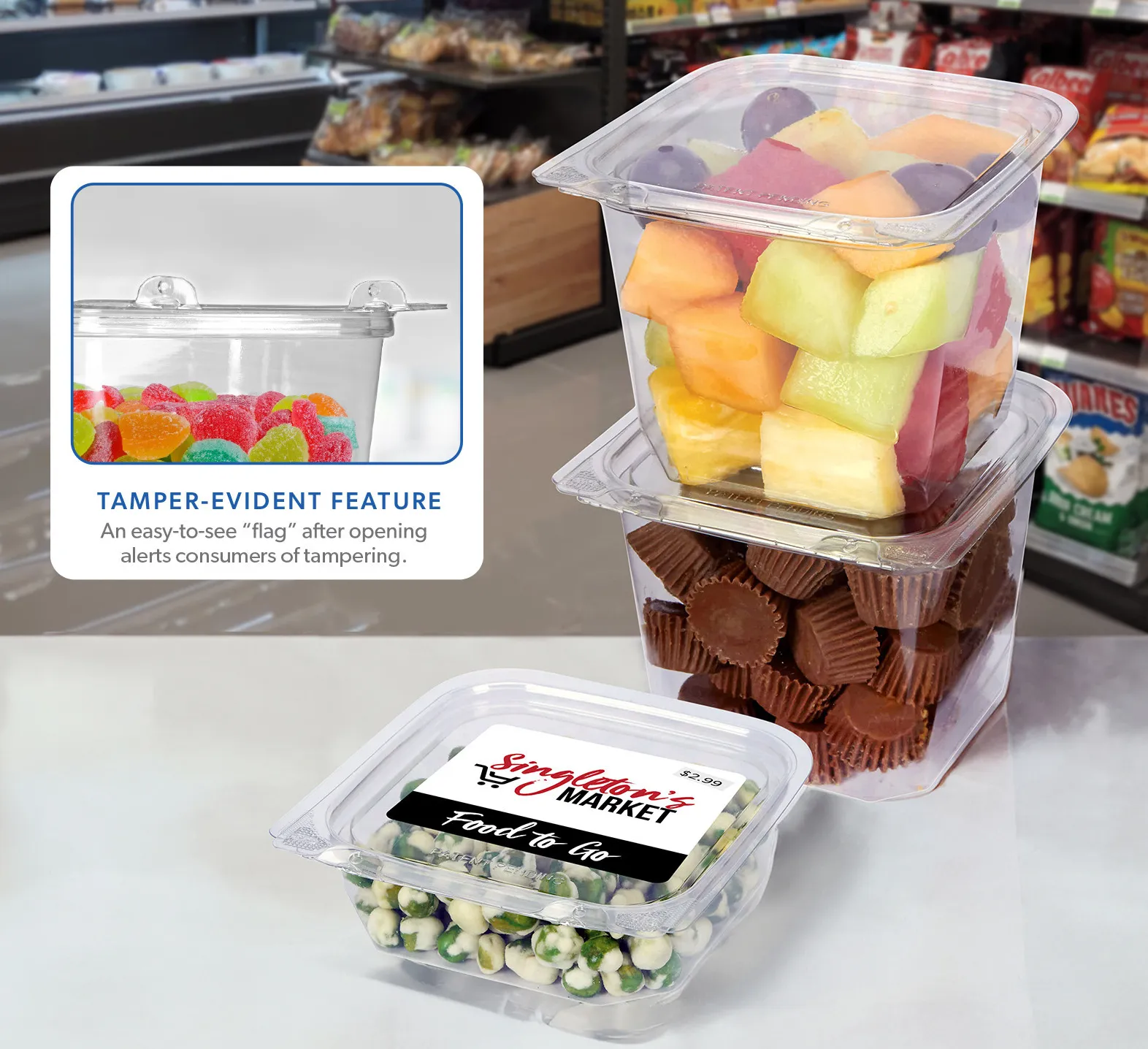
Novolex brand Waddington North America introduced clear food containers with a tamper-evident “flag.” The feature automatically pops up and stays raised once the rigid plastic container is opened, indicating to a consumer that the container is not sealed.
The TamperFlag activates in a single step when the hinged container is initially closed. This product eliminates the need for tear strips, according to the company, and the design is leak-resistant. Containers with TamperFlag can be made with 25% or 50% postconsumer recycled plastic, and they’re available in sizes ranging from 8 ounces to 32 ounces.
KYSU canister
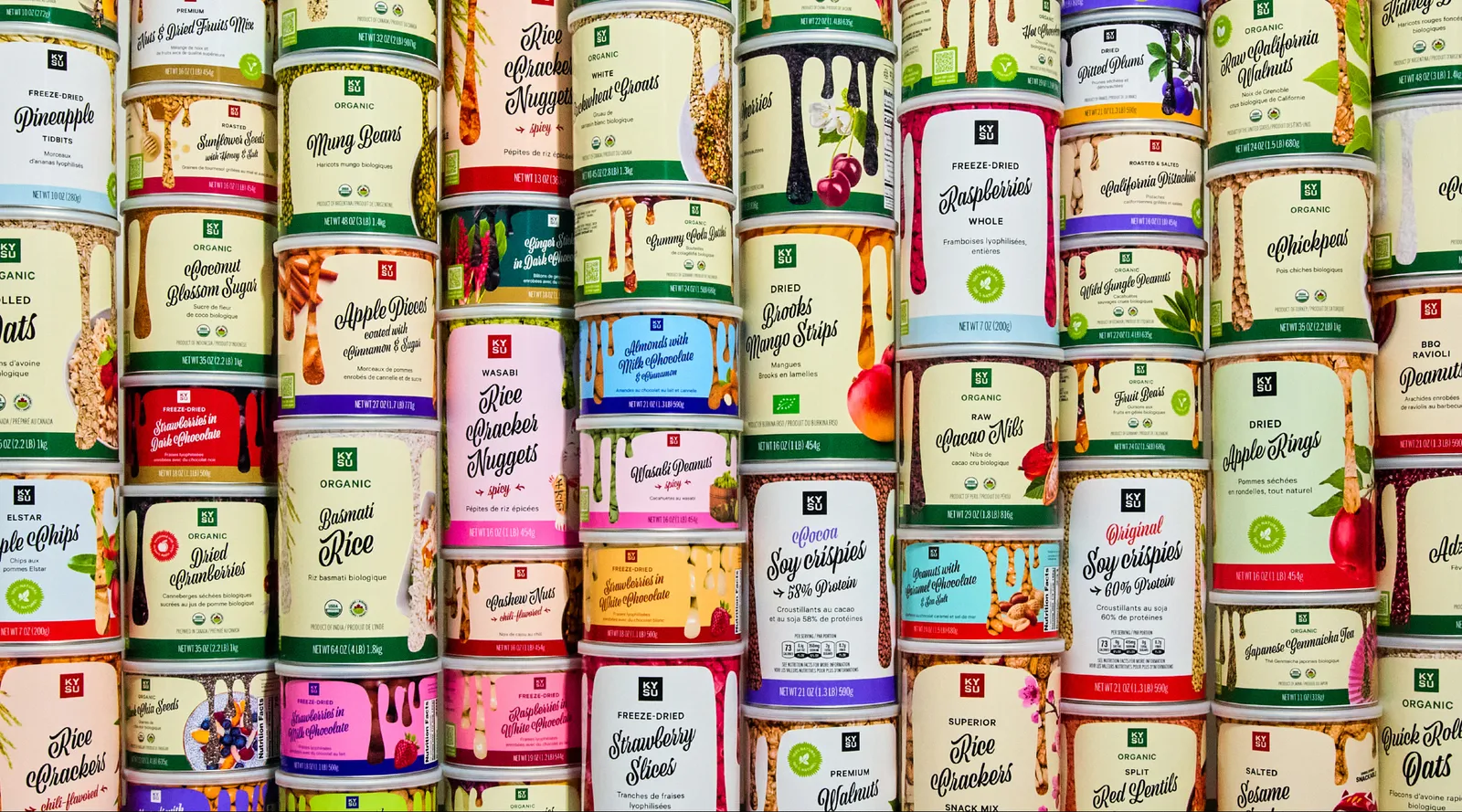
Food and ingredient company KYSU launched packaging across all of its 80 product lines that is made entirely from recycled materials — barring the label, inner liner and sealing film. KYSU eliminated all plastic pouches from its portfolio in response to what it described as a public push to reduce plastic use.
The paper-based canisters are recyclable, the company said in a news release. KYSU also encourages consumers to reuse the containers before recycling them, such as for holding craft and office supplies or planting herbs.
“We recognized a glaring inconsistency in the organic food industry — products marketed as earth-friendly often come packaged in materials that harm the environment. This contradiction compelled us to take decisive action,” CEO Kyrill Leutsch said in the news release. “By extending our commitment to sustainable packaging across our entire product line, we aim to provide an eco-friendly alternative that empowers consumers to actively participate in reducing plastic waste.”



